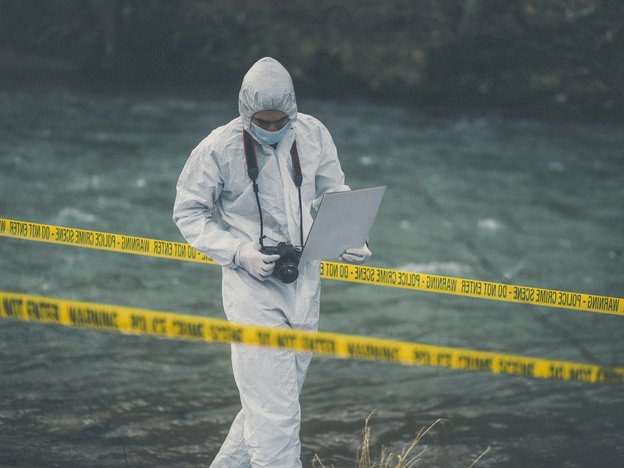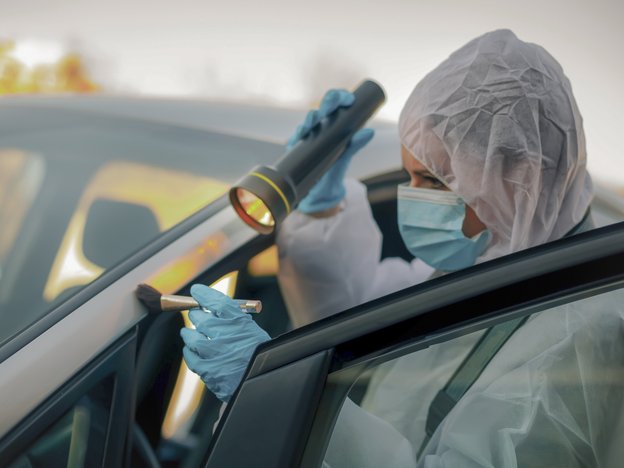Forensic scientist, Kaipūtaiao tūhura taihara
Also known as
- DNA analyst, toxicologist, crime scene examiner, firearms examiner, illicit drug analyst
Forensic scientists use their scientific knowledge and skills to investigate crimes and help the police find or eliminate suspects.

Your pay could be
$73K
Lower
$90K to $133K
Most common
$152K
Upper
How does this pay compare?
Pay is before tax

Forensic scientists
- usually work regular business hours, but may work weekends or evenings
- usually work in laboratories, offices and at crime scenes and may travel locally and nationally
- may work in hazardous conditions
- may do emotionally demanding work
- need to be methodical, accurate and identify and solve problems
Tasks
- analyse hair, blood and other body fluids
- examine objects like glass, bullets and tools
- test body tissues for poisons
- identify drugs in body fluids or crime scenes
- visit crime scenes to collect evidence
- write reports on findings
- present evidence in court
- take notes and draw crime scene maps
- investigate fires and insurance claims
- train police on evidence collection
Investigative
Practical
Organised
Interests that fit this job
Interest quiz,
Kairoro Whakaritea
Do the Interest quiz to find out how well your interests fit with this job.
Do the quizYou need more than one qualification to become a forensic scientist.
You need
- a Bachelor of Science (Forensic Science)
- a Postgraduate Diploma in Forensic Science
- a driver licence
- to pass a police check
You may need
- a Master of Science (Forensics)
If you’re in school
You need University Entrance to do the study or training for this job.
Loading job ads
Other career ideas in Biology and chemistryĒtahi atu huatau aramahi i Mātai koiora me te matū,
Showing career ideas 1-6 of 14